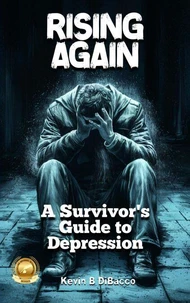"Blood Bourne Silence" is a profound reimagining of vampire mythology that explores the transformative power of memory and consciousness. Lucien, an ancient vampire who has stalked the shadows of human civilization for centuries, finds his existence fundamentally altered by the emergence of CO-H25, a virus that does more than kill-it rewrites the very nature of vampiric existence. As the virus spreads through the vampire underground, it becomes a catalyst for evolutionary change.
Traditional vampire survival tactics of blind feeding are replaced by a radical new understanding: each life taken becomes a memory that cannot be forgotten. Cities like Bucharest, Istanbul, Prague, and Marrakesh transform from hunting grounds to living archives of hidden histories. Guided by a mysterious vampiress and joined by other transformed vampires like Noura, Khaled, and Elian, Lucien discovers that the virus is not a plague, but a "memory engine"-a biological archive designed to make vampires truly understand the weight of their actions.
They must confront the old guard, represented by vampires like Gregor who resist change, and establish a new Covenant of Memory. The novel is a philosophical exploration of immortality, consciousness, and empathy. It asks profound questions: What does it mean to truly remember? How do we carry the weight of our past actions? Can transformation occur through radical empathy rather than destruction? Ultimately, "Blood Bourne" is about evolution-not just of vampires, but of consciousness itself.
"Blood Bourne Silence" is a profound reimagining of vampire mythology that explores the transformative power of memory and consciousness. Lucien, an ancient vampire who has stalked the shadows of human civilization for centuries, finds his existence fundamentally altered by the emergence of CO-H25, a virus that does more than kill-it rewrites the very nature of vampiric existence. As the virus spreads through the vampire underground, it becomes a catalyst for evolutionary change.
Traditional vampire survival tactics of blind feeding are replaced by a radical new understanding: each life taken becomes a memory that cannot be forgotten. Cities like Bucharest, Istanbul, Prague, and Marrakesh transform from hunting grounds to living archives of hidden histories. Guided by a mysterious vampiress and joined by other transformed vampires like Noura, Khaled, and Elian, Lucien discovers that the virus is not a plague, but a "memory engine"-a biological archive designed to make vampires truly understand the weight of their actions.
They must confront the old guard, represented by vampires like Gregor who resist change, and establish a new Covenant of Memory. The novel is a philosophical exploration of immortality, consciousness, and empathy. It asks profound questions: What does it mean to truly remember? How do we carry the weight of our past actions? Can transformation occur through radical empathy rather than destruction? Ultimately, "Blood Bourne" is about evolution-not just of vampires, but of consciousness itself.





















